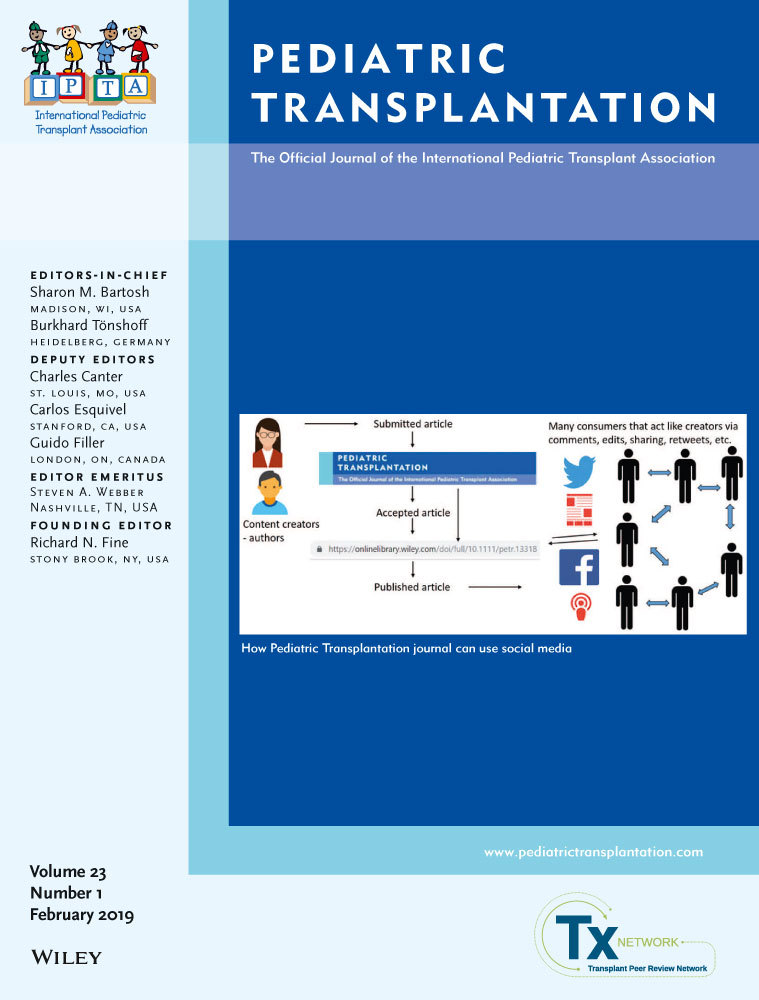Effects of the strict control of blood pressure in pediatric renal transplant recipients—ESCORT trial
Abstract
Objectives
Strict BP control can retard progression of CKD in children. This prospective 3-year randomized controlled trial is aimed to investigate whether strict BP control can retard progression of chronic allograft dysfunction.
Methods
Twenty-three pediatric patients were randomly selected to the standard BP group (STAND, target 24-hour MAP 50-95th percentile, n = 11) or the intensified BP group (INTENS, target 24-hour MAP <50th percentile, n = 12). The primary endpoint was an annual reduction in eGFR (Schwartz formula, mL/min/1.73 m2/y), secondary graft survival, BP, proteinuria, and safety.
Results
A total of 21 children (age at entry 11.2 (range 6.2-16.8) years) completed the study, with 73% of children in INTENS and 70% of children in STAND group reached their goal BP. Ambulatory indexed 24-hour MAP decreased significantly in INTENS group (from 0.94 (range 0.86-1.17) to 0.85 (range 0.79-1.01, P < 0.01)) but not in STAND group (from 0.93 (range 0.85-1.07) to 0.90 (range 0.84-1.01)). Proteinuria did not change significantly in either group (22.1 mg/mmol creatinine to 15.3 in STAND group vs 25.7 to 11.8 in INTENS group). The annual reduction in eGFR did not differ between the INTENS and STAND groups (−1.9 mL/min/1.73 m2/y (range +6.4 to −14.3) vs −0.9 (range +4.0 to −8.5)).
Conclusion
This first randomized controlled trial on strict BP control has demonstrated that strict BP control is feasible in 73% of children but the strict BP control does not lead to retardation of graft function decline in comparison with standard BP control. However, the results need to be interpreted with caution keeping the major limitation of the study, that is, small sample size in mind.




